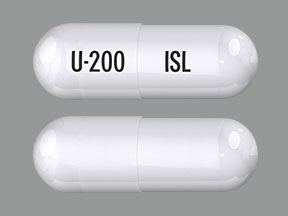
Ursodiol Coupons & Savings Card – Discount Prices from $569.10
Generic for: Urso 250, Urso forte, Ursodiol+syrspend sf
My prescription
Edit
200MG, Ursodiol (60 Capsules)
Select pharmacy

CVS
$2576.70
COUPON PRICE
Albertsons
$569.10
COUPON PRICE
Walgreens
$2628.27
COUPON PRICE
Walmart
$2679.81
COUPON PRICEUrsodiol savings card
Show this card to your pharmacist
Albertsons
$569.10
BIN
ID
PCN
GRP
019876
LH21E32726
CHIPPO
LHX
Powered by
More prescriptions for gallstones
More prescriptions for gallstones
Price history for Reltone (brand) & Ursodiol (generic)
60 Capsules, 200MG
Average retail price for Reltone
Average retail price for Ursodiol
Average SaveHealth price for Ursodiol
Our price history data is based on aggregated prescription data collected from participating pharmacies in America. Our prescription data updates daily to reflect the latest price changes. If you notice a missing data point, it means there wasn't sufficient data available to generate a monetary value for that date.
We analyzed Ursodiol prices for (200MG, 60 Capsules) over the last 12 months. The average retail price was $3033.28, while the average price using the SaveHealth discount card was $2575.50. That's a savings of approximately 15.09% when using our Ursodiol coupon.
Compared to the generic version, Reltone had an average price of $2077.48 over the same time period. With the SaveHealth savings card, Ursodiol is -23.97% cheaper on average than Reltone.
*Retail prices are based on pharmacy claims data, and may not be accurate when we don't have enough claims.
Ursodiol+syrspend Sf (Ursodiol) dosage forms
Dosage Quantity Price from Per unit 200MG 60 Capsules $569.10 $9.48 300MG 1 Capsule $2.98 $2.98 300MG 50 Capsules $26.63 $0.53 300MG 60 Capsules $29.75 $0.50 300MG 100 Capsules $45.38 $0.45 300MG 180 Capsules $60.64 $0.34 400MG 60 Capsules $793.74 $13.23
| Dosage | Quantity | Price from | Per unit |
|---|---|---|---|
| 200MG | 60 Capsules | $569.10 | $9.48 |
| 300MG | 1 Capsule | $2.98 | $2.98 |
| 300MG | 50 Capsules | $26.63 | $0.53 |
| 300MG | 60 Capsules | $29.75 | $0.50 |
| 300MG | 100 Capsules | $45.38 | $0.45 |
| 300MG | 180 Capsules | $60.64 | $0.34 |
| 400MG | 60 Capsules | $793.74 | $13.23 |
